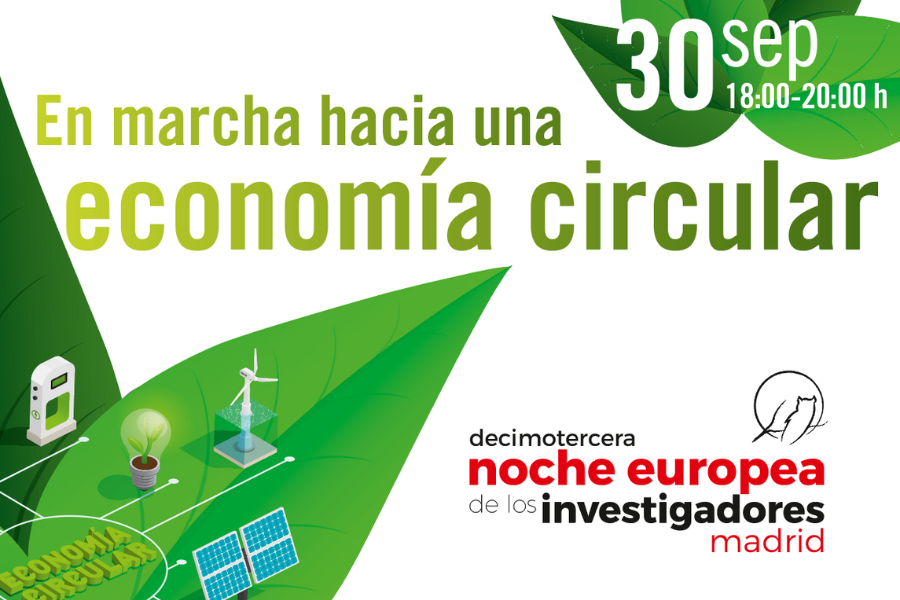IMDEA Energy participates next September 30th in the European Researchers’ Night
Once again this year, IMDEA Energía is participating in the European Researchers’ Night, with a series of activities aimed at families and children between 5 and 10 years old, which will take place on September 30 from 18:00 hours.
After having carried out the workshops in online format in the last two years due to the pandemic by COVID, the meeting is resumed in person, with a set of activities aimed at families and children between 5 and 10 years under the title ‘Moving towards a circular economy’.
The aim is to raise awareness among children about the importance of the efficient use of resources to build a circular and sustainable world, to try to explain how energy and the different ways in which we use it can change the world and its habitability. To this end, participants will be guided on a journey through various interactive workshops, in a fun and educational event, in which almost fifty researchers from the center will participate.
The following are the four workshops planned:
1. Pedal-powered races
Push the pedals hard to win the race! Using dynamos, participants will pedal bicycles to generate the electrical energy needed to drive several racing cars around a circuit.
2. Sustainability, life cycle and CO2
Do you dare to ‘capture’ CO2 and enclose it in soap bubbles?
Take our interactive quiz and puzzle solving to learn about concepts such as life cycle and new product research as an action to improve the environment.
3. Magic seems, yeasts and pores are
Did you know that everyday materials that can be found in our kitchens can generate enough energy to inflate one or more balloons?
Participants will carry out a “mini-fermentation” by mixing fresh yeast with hot water and sugar.
In addition, several samples of yeast and microalgae will be available for viewing under a microscope.
4. Solar heat, chocolate and conductive materials
The concept of “concentration of sunlight” will be demonstrated by melting chocolate, using solar concentrators designed by researchers and manufactured with a 3D printer. We will have different designs to analyze how geometries and colors favor more or less the concentration and the absorption and reflection of light.
In addition, in this workshop participants will discover how conductive materials work, such as a paper clip or pencil graphite, and will understand what electrochemical conductivity is by using salt to operate various electrical circuits, such as cars, boats and/or windmills.
At the end, an ‘energizing snack’ will be served for all participants.
We look forward to seeing you!
Practical information: (From all the activities of the institution)
Title of the activity: ‘On the way to a circular economy’
Venue: Avda. Ramón de la Sagra, 3, Parque Tecnológico de Móstoles, 28935, Móstoles, Madrid
Time: from 18:00 to 20:00h
Reservation required: Yes
How to book: Through the registration form that will be enabled in September.



